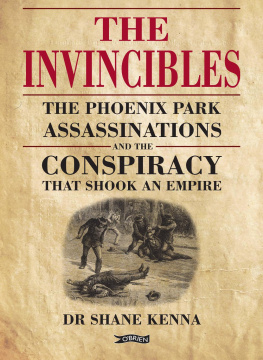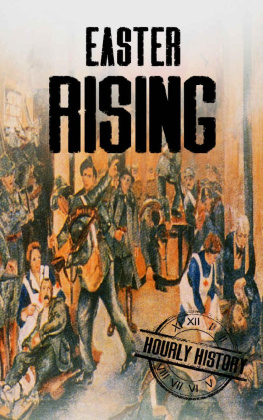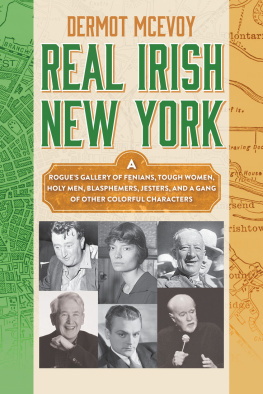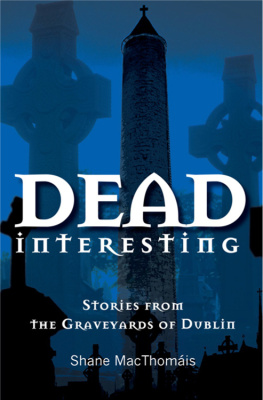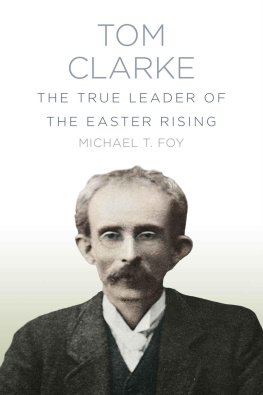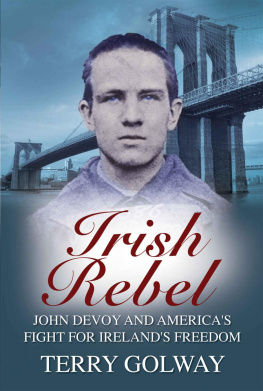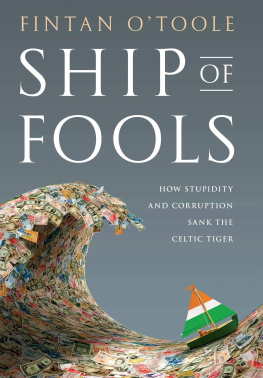First published in 2015
8 Chapel Lane
Sallins
Co. Kildare
2015 Shane Kenna
British Library Cataloguing in Publication Data
An entry can be found on request
978-1-78537-013-7 (Paper)
978-1-78537-014-4 (Cloth)
978-1-78537-015-1 (PDF)
978-1-78537-017-5 (Epub)
978-1-78537-016-8 (Kindle)
Library of Congress Cataloging in Publication Data
An entry can be found on request
All rights reserved. Without limiting the rights under copyright reserved alone, no part of this publication may be reproduced, stored in or introduced into a retrieval system, or transmitted, in any form or by any means (electronic, mechanical, photocopying, recording or otherwise) without the prior written permission of both the copyright owner and the above publisher of this book.
Printed in Ireland by Sprint-Print Ltd.
A CKNOWLEDGEMENTS
This book is the culmination of several years of research into the life and times of Jeremiah ODonovan Rossa. In the course of over a decade of studying Irish history I have always found him to be one of the most remarkable and defining characters in nineteenth-century Ireland. His funeral at Glasnevin Cemetery in the twentieth century is rightly seen as one of the most important political funerals in modern Ireland, setting the scene, as it did, for the Easter Rising of 1916. Indeed it was at this funeral that Pearse delivered his famous panegyric commenting on how revolution was inevitable and defining ODonovan Rossa as an unrepentant Fenian. In this decade of commemorations, upon the 100 th anniversary of his death, I feared that the life of ODonovan Rossa could be lost as the centenary of his death focused more on the relevance of his funeral at the expense of the man. With this in mind I chose to write this biography of a figure who can only be described as an iconic revolutionary within the great pantheon of Irish Republicanism.
In the course of this biography I was incredibly fortunate to meet a number of people who were instrumental to this publication. Special thanks to my friends in Cork for their support of this initiative and without them it would have been impossible. One of these has been inspirational and is a remarkable individual. His love for ODonovan Rossa and commitment to maintaining Irish history is truly exceptional and when time passes the work he has done will be remembered by those whom he touched. I am indebted to the family of ODonovan Rossa, in particular Williams and Rossa Cole, their Cousin Eileen and the National Graves Association for introductions and support. I would like to pay special tribute to Robert Ballagh. Robert is an inspirational man who I am proud to know. His art is internationally acclaimed and he has kindly agreed to allow his new print, the Funeral of ODonovan Rossa, to be reproduced in this book. For this I am greatly humbled. I would like to thank the staff of the National Library of Ireland, the New York Public Library, The Catholic University of America and the Irish-American Historical Association. I am exceedingly grateful to Irish Academic Press and Conor Graham for their support in this project and would also like to thank George McCullough, CEO of Glasnevin Cemetery, Paddy Gleeson, Head Guide Glasnevin Museum, Gabriel Doherty of UCC and Dan Breen of the Cork City Museum and Archive. As always I am greatly indebted to my family and sincerely thank my mother Olive, fiance Edel, John, Lisa, Darcy and Lily.
I NTRODUCTION
On 29 June 1915 Jeremiah ODonovan Rossa died While his entire life was the very personification of the Fenian struggle, paradoxically, his death was similarly so. The death of ODonovan Rossa in June 1915, despite what The Irish Times had suggested, had transformed his life of unyielding resistance to British rule in Ireland into a symbol of resistance for Irish nationalism. His death was almost prophetic and symbolised the beginnings of great change in Ireland. Thomas MacDonagh, himself a future leader of the Easter Rising, eulogised him with a poetic prophesy:
Grieve not for him: speak not a word of sorrow;
Although his eyes saw not his countrys glory,
The service of his day shall make our morrow:
His name shall be a watchword in our story.
Him England for his love of Ireland hates:
This flesh we bury Englands chains have bitten:
That is enough; for our deed he waits;
With Emmets let his epitaph be written.
It is clear from this that ODonovan Rossas life and death play an important part in the understanding of the Easter 1916 Rising. In many respects his death can be seen as the precursor to the great Revolutionary Epoch in Irish history. ODonovan Rossas final wish was to be buried in Ireland; he was desirous to be taken home to his home in Roscarbery, West Cork, where he would be buried in a humble Famine graveyard alongside his father and other victims of the Great Hunger. With the permission of his family, however, Clan na Gael and the IRB, through John Devoy and Thomas James Clarke, buried ODonovan Rossa in Irelands national graveyard: Glasnevin Cemetery, Dublin. Both men had realised that the return of ODonovan Rossa to Ireland, and his burial in Dublin, could act as a precursor to rebellion and a show of strength for advanced Irish nationalism. They predicted that the funeral of Jeremiah ODonovan Rossa could re-awaken a national spirit in the Irish people, whom they feared were becoming more British than the British themselves. It was at this funeral that Thomas James Clarke instructed Patrick Pearse to deliver the graveside oration over ODonovan Rossas remains. In a reference to the assembled crowd and the British authorities, Clarke instructed Pearse to make it as hot as hell. Staying true to Clarkes instructions at the funeral, Pearse famously declared:
Life Springs from death; and from the graves of patriot men and women spring living nations. The defenders of this realm have worked well in secret and the open. They think that they have pacified Ireland. They think they have purchased half of us and intimidated the other half. They think that they have foreseen everything, think that they have provided against everything; but the fools, the fools, the fools! they have left us our Fenian dead, and while Ireland holds these graves, Ireland unfree shall never be at peace.
ODonovan Rossa had lived a full and varied life. He had witnessed the Irish Famine at first hand. He had been a founding figure in Fenianism in both Ireland and America and had overseen the emergence of the Fenian newspaper, The Irish People . He had been arrested and imprisoned, thus experiencing the harsh realities of the Victorian prison system. After being amnestied, he had been forced into a This persona of ODonovan Rossa, as a kind-hearted and warm individual, is often lost in the study of his character, with most historians focusing strictly on the revolutionary rather than the man.
This book marks the 100 th anniversary of the death of Jeremiah ODonovan Rossa and is the first biography of the Irish rebel to be written in the English language. The intention of this book is to commemorate ODonovan Rossa as the man he was a greatly complicated individual who was both a family and political man. This book will tell his story from his earliest years to his death and funeral, bringing to life a man whose entire lifes work was dedicated to the establishment of an Irish Republic.


